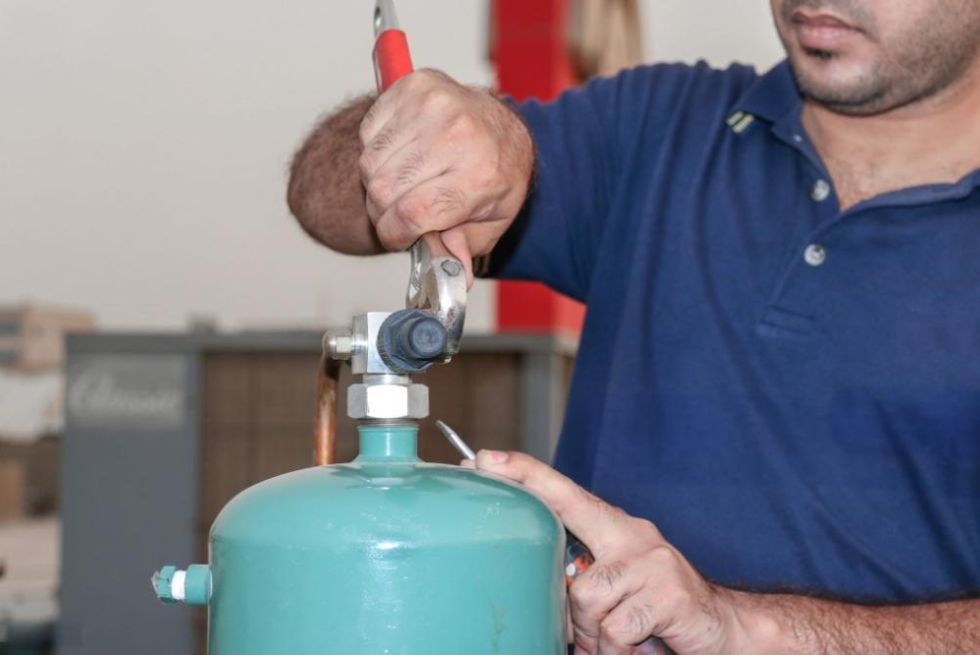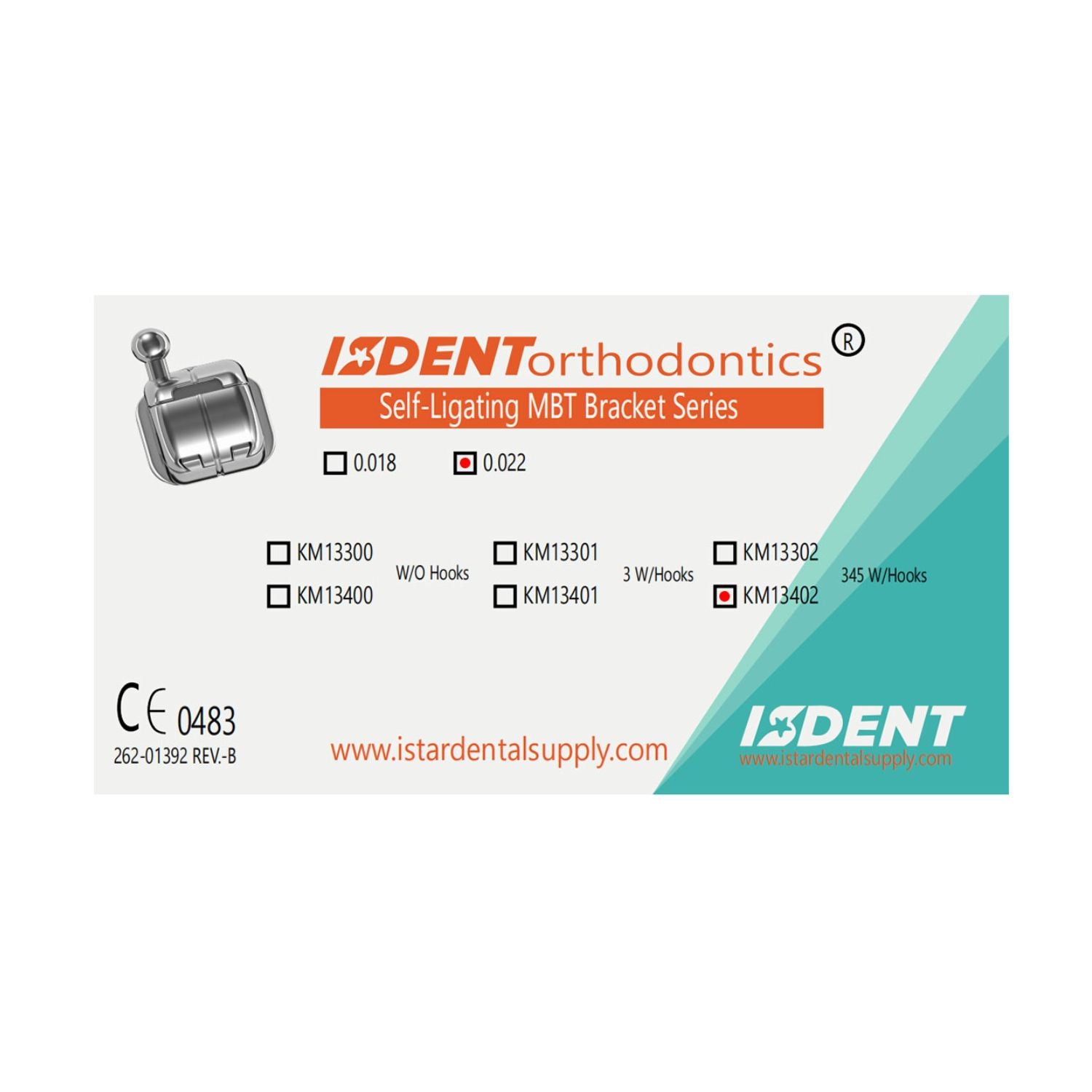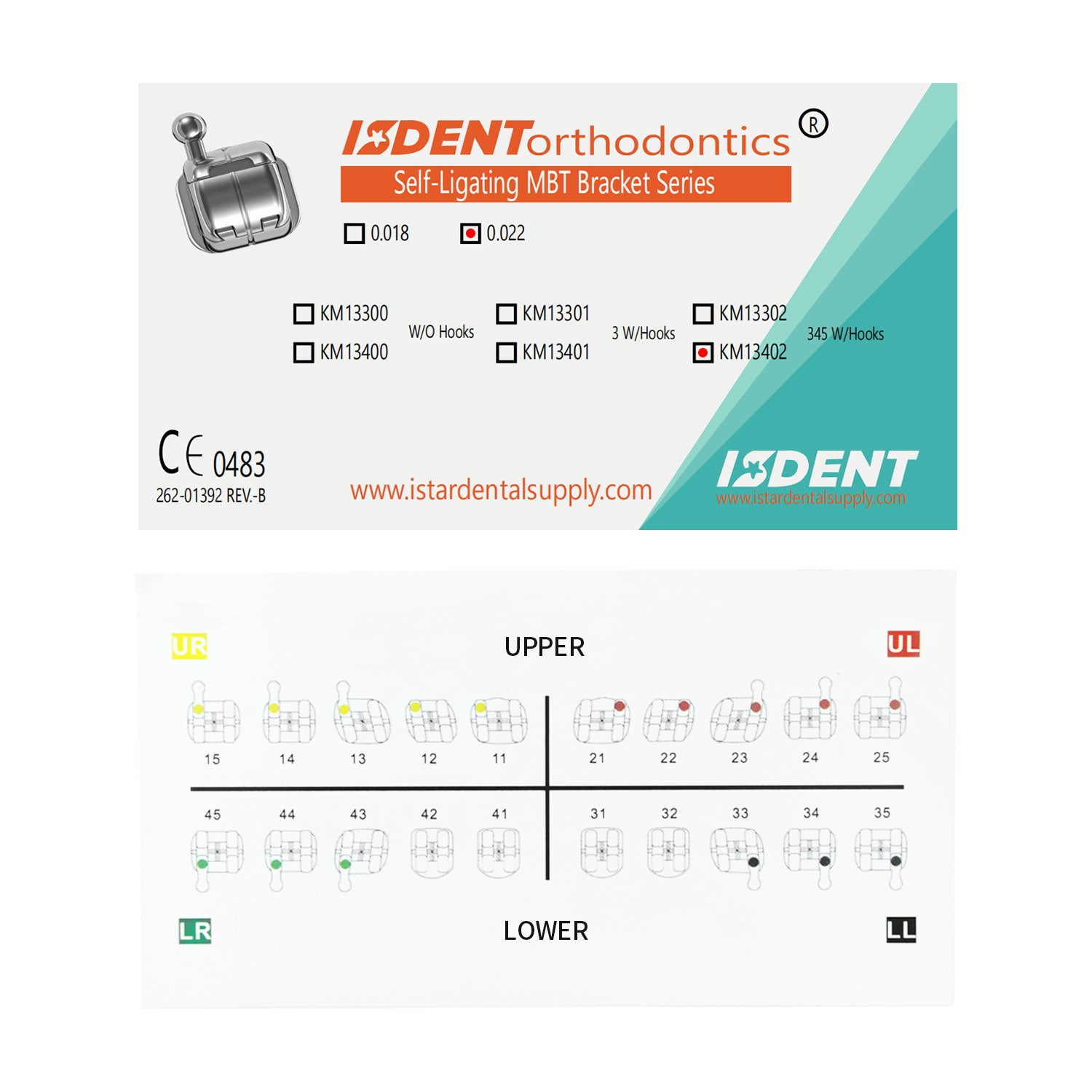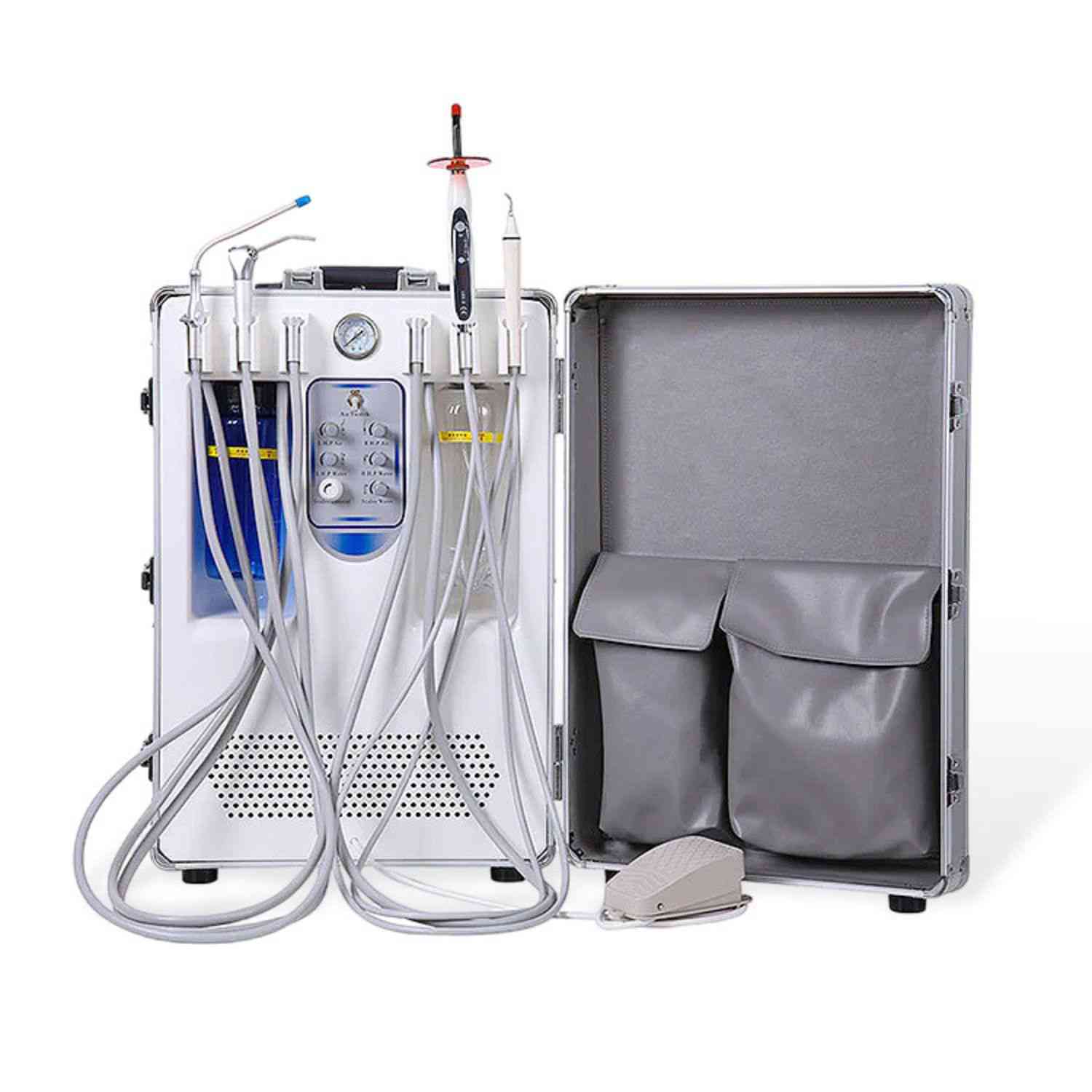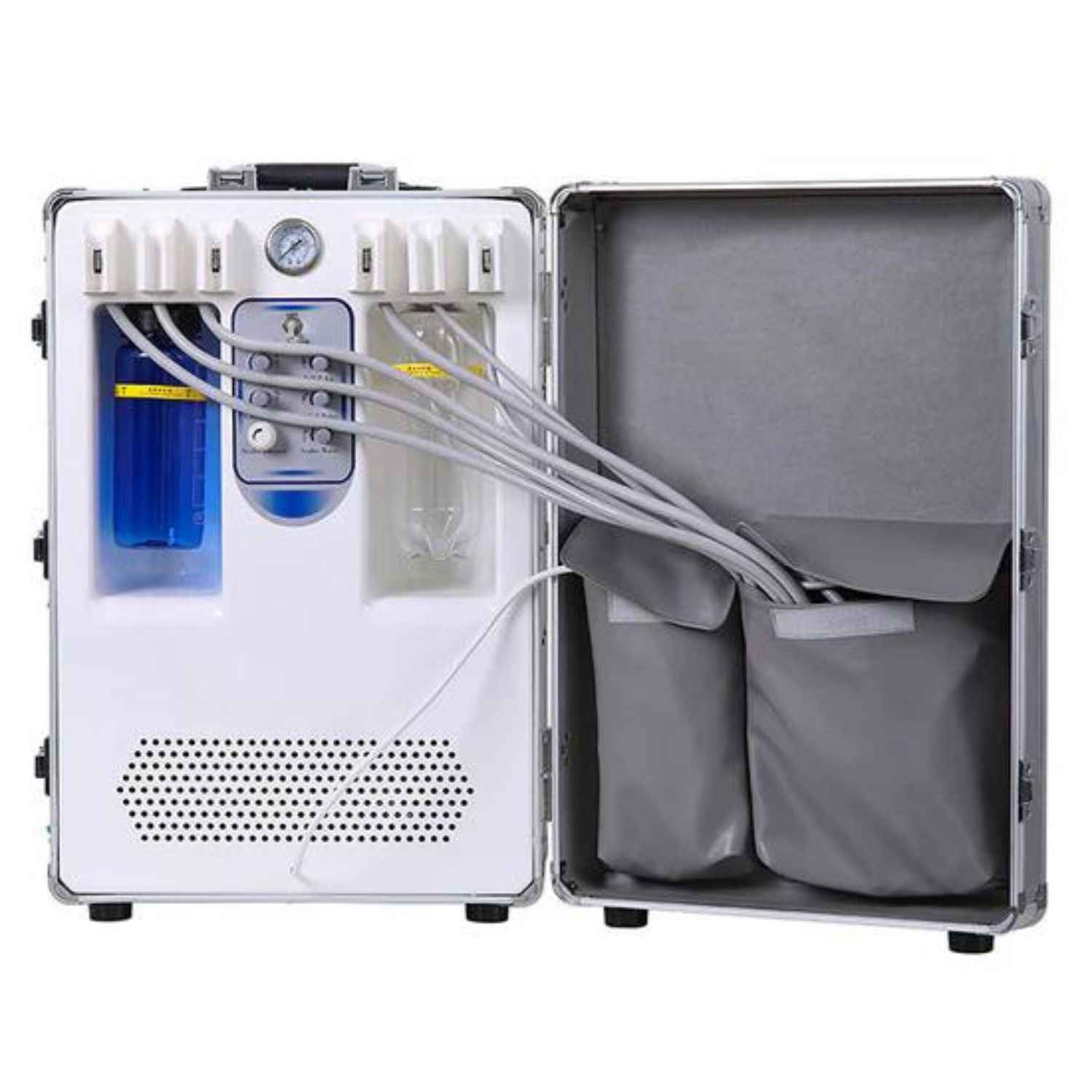Maximizing the Lifespan of Your Dental Air Compressor: Preventative Maintenance Tips
This article provides a comprehensive guide to understanding the importance of regular maintenance for your dental air compressor. We explain why preventative maintenance is crucial for avoiding costly repairs and ensuring the longevity and efficiency of your equipment. We also offer practical, actionable tips that dentists, dental clinics, dental labs, dental hospitals, and dental schools can implement. ISTAR Dental Supply, your trusted partner in high-quality dental equipment manufacturing, offers expertise, but does not offer repair services.

Why Do Dental Compressors Need Servicing?
Like any piece of vital equipment, dental air compressors need regular attention to ensure they operate at peak efficiency. A well-maintained compressor is fundamental to a smoothly running dental practice. Think of it like your car; you wouldn't skip oil changes and expect it to run forever, would you? Regular servicing is crucial for maintaining your compressor's performance and preventing inconvenient, expensive breakdowns.
Ignoring regular compressor maintenance can lead to a variety of problems. These can range from decreased air pressure, which affects the performance of your handpiece and other pneumatic tools, to complete system failure. It is important to be proactive, rather than reactive, when it comes to your dental equipment.
Understanding the Importance of Preventative Maintenance for Dental Air Compressors
Preventative maintenance is key to avoiding unexpected downtime and costly repairs. Air compressor repair can be expensive, and the disruption to your practice can be even more damaging. Scheduled maintenance allows for the early detection of potential problems, such as air leak issues or worn-out parts, before they escalate into major failures. ISTAR Dental Supply believes that a maintenance schedule is a critical investment in the lifespan of a dental air compressor.
Regular inspections and preventative maintenance are essential to extending the life of your dental air compressor. By implementing a proactive approach, you can not only resolve issues, but prevent them from occurring in the first place. This helps keep your compressor running smoothly and efficiently, avoiding interruptions to your patients’ dental care.
What are the Common Signs that Your Dental Air Compressor Needs Servicing?
There are several telltale signs that your air compressor might need servicing. Paying attention to these warning signs can save you from significant repair costs down the line. The most important aspect is ensuring a consistent and reliable air supply.
Here's a quick checklist:
- Unusual Noises: Grinding, squealing, or rattling sounds often indicate worn or damaged internal components.
- Reduced Air Pressure: If your pressure gauge consistently shows lower than normal readings (below 100 psi is a common threshold), there might be a leak or a problem with the pressure switch.
- Excessive Vibration: This could indicate loose parts or an imbalance within the compressor.
- Oil Leaks: Visible oil leaks are a clear sign that something is wrong and needs immediate attention.
- Compressor is overheating
If you notice any of these issues, it's crucial to address them promptly. While ISTAR Dental Supply doesn't offer repair service, we recommend consulting a qualified technician to diagnose and fix the problem.
How Often Should You Service Your Dental Air Compressor?
The frequency of compressor service depends on several factors, including the type of compressor you have, its usage, and the manufacturer's recommendations. As a general rule, ISTAR Dental Supply advocates for following the manufacturer's guidelines closely.
However, some general guidelines apply:
- Daily Checks: Visually inspect the compressor for any obvious signs of problems, such as leaks or unusual noises. Check oil if available.
- Weekly Checks: Check oil levels (if applicable) and drain any accumulated moisture from the tank.
- Monthly Checks: Inspect and clean the air intake filters. A clogged filter restricts airflow and reduces efficiency.
- Quarterly/Semi-Annually: More thorough inspection, including checking belts, hoses, and fittings for wear and tear. Change the oil (if applicable) based on the manufacturer's recommended intervals.
- Annually: Consider a comprehensive inspection by a qualified technician, even if you're diligent with your own maintenance. They can identify potential issues that you might miss.

The ISTAR Dental Supply Dental Air Compressor Maintenance Checklist
To keep your dental air compressor in top condition, we've developed a practical checklist. This guide helps you perform routine maintenance tasks efficiently and effectively.
| Task | Frequency | Description |
|---|---|---|
| Visual Inspection | Daily | Check for leaks, unusual noises, or vibrations. |
| Drain Moisture | Daily/Weekly | Drain any accumulated water from the tank to prevent corrosion. |
| Check Oil Level | Weekly | If your compressor is oil-lubricated, check the oil level and top it off if necessary. Use the correct compressor oil recommended by the manufacturer. |
| Clean Intake Filter | Monthly | Clean or replace the air intake filters to ensure optimal airflow. This is vital for maintaining air pressure. |
| Inspect Hoses & Fittings | Monthly | Inspect for any cracks or leaks in the air line system. A leak causes the compressor to work harder and will be damaging over time. |
| Check Belt Tension | Quarterly | If your compressor has belts, check their tension and adjust or replace them as needed. |
| Change Oil | Semi-Annually/Annually | Change the oil according to the manufacturer's recommendations. This is crucial for lubricating the moving parts and preventing wear and tear. |
| Clean the Dryer | Annually. | If the air dryers are not functioning correctly, moisture can contaminate the compressed air, compromising its quality. |
| Filter Assembly | Annually | If your compressor has a coalescing filter, it will need to be checked to see if it needs to be replaced. |
| Professional Inspection | Annually | Have a qualified technician perform a thorough inspection to identify any potential problems. |
Tips for Maximising the Performance and Longevity of Your Dental Air Compressor
Beyond the routine maintenance checklist, there are several proactive steps you can take to ensure the performance and longevity of your dental air compressor.
- Proper Installation: Ensure your compressor is installed in a well-ventilated area, away from dust and excessive moisture. Correct installation is the foundation for reliable operation.
- Avoid Overworking: Don't exceed the compressor's duty cycle. This is the percentage of time the compressor can run in a given period. Overworking leads to overheating and premature wear.
- Use Quality Parts: When replacement parts are needed, always use high-quality components recommended by the manufacturer. This ensures compatibility and optimal performance.
- Monitor Energy Consumption: An unexpected increase in energy consumption could indicate a problem with the compressor, such as a leak or internal friction.
Choosing the Right Dental Air Compressor for Your Practice
Selecting the right dental air compressor for your practice's air needs is the first step in ensuring long-term reliability. Consider the size of your practice, the number of operatories, and the types of equipment you use.
ISTAR Dental Supply offers a wide range of high-quality Dental Equipment, including Dental Compressors, designed to meet the specific needs of dental professionals. A well-chosen compressor will provide reliable air pressure and require less maintenance in the long run.
The Importance of Clean, Dry Air in Dentistry
Clean, dry compressed air is essential in dentistry. Moisture and contaminants can damage your expensive dental equipment, such as Dental Handpieces, and compromise patient safety.
A quality Dental Compressor with an effective dryer system is crucial. The dryer removes moisture from the air, preventing corrosion and the growth of bacteria. This ensures that you're delivering clean, safe air to your patients.
Avoiding Downtime: The Cost of Compressor Failure
Downtime due to compressor failure can be extremely costly for a dental office. Not only do you face repair costs, but you also lose revenue from canceled appointments and the inability to perform procedures. This impacts your practice's efficiency and can damage your reputation.
Regular maintenance is a small price to pay to avoid the significant financial and operational consequences of unexpected breakdowns. Preventative maintenance helps ensure optimal performance and minimize the risk of unexpected breakdowns, keeping your practice running smoothly.

FAQs
What is the most common cause of dental air compressor failure?
The most common cause is often neglect of routine maintenance, particularly failing to drain moisture from the tank and change or clean air filters.
Can I perform dental air compressor maintenance myself?
Many basic maintenance tasks, such as draining the tank and cleaning filters, can be performed by dental staff. However, more complex tasks and repairs should be handled by qualified technicians.
How can I tell if my dental air compressor has a leak?
A noticeable drop in air pressure or the compressor running more frequently than usual can indicate a leak. You can also use a soapy water solution to check for leaks around fittings and connections.
What type of oil should I use in my dental air compressor?
Always use the type of compressor oil specifically recommended by the manufacturer. Using the wrong oil can damage the compressor.
What's the difference between an oil-lubricated and an oil-free dental air compressor?
Oil-lubricated compressors use oil to lubricate the internal components, while oil-free compressors use other materials, such as Teflon. Oil-free compressors are generally considered more hygienic for dental applications.
How does regular air compressor maintenance contribute to energy efficiency?
A well-maintained compressor operates more efficiently, requiring less energy to produce the same amount of compressed air. Clean filters, proper lubrication, and leak-free systems all contribute to reduced energy consumption.
Summary
- Regular compressor service is essential for the longevity and efficiency of your dental air compressor.
- Preventative maintenance helps avoid costly air compressor repair and downtime.
- Follow a maintenance checklist that includes daily, weekly, monthly, and annual tasks.
- Address any signs of trouble, such as unusual noises or reduced air pressure, promptly.
- ISTAR Dental Supply offers a variety of dental equipment, including, Dental Unit, Dental Suction, and Dental Chair.
- For the maintenance of your dental air system, and to keep your compressors in good condition, partner with a trusted technician for air compressor service and repair.

